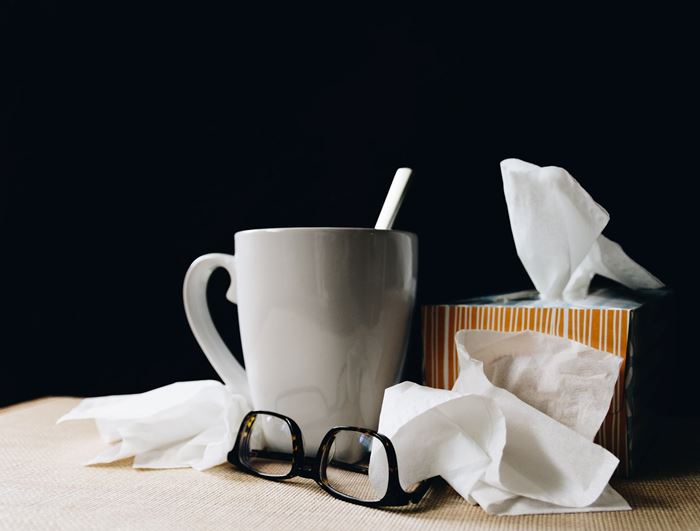As a kid, sick days were kind of awesome because it meant sleeping in, watching The Price is Right, and eating a lot of popsicles. However, as a college student, sick days aren’t quite as fun. Though you’d love to sleep all day and watch anything besides a lecture, other responsibilities can’t be put on hold while you recover. So, it’s wise to be prepared each semester and take preventative steps to avoid catching an illness but to also know what steps to take if you do get sick.
Sleep
There’s no doubt that as a student, you’ve learned to appreciate nap time. Sleeping is extremely important for your body. It helps you regenerate your energy supply, increases your memory, decreases stress, and assists in physical recovery. If you do get sick, the most important thing you can do is get some rest. However, to avoid getting sick, you should try to keep a regular sleep schedule and keep your bedroom space tidy and calming to ensure quality rest.
Eat Well
As a poor college student, it can be tough to find time and money to cook and eat a real meal. Relying on unhealthy foods like Corndogs, Top-Ramen, and Poptarts will aid in decreasing your immune system—making you more susceptible to illnesses. The meals you choose should have some actual nutritional value to them. When in doubt, buy a bag of baby carrots and munch on them throughout the week. If you start feeling sick, take a look at your diet and see if there is something you can fix there.
Drink Water
Water is amazing for you. It helps your skin and your metabolism, but most importantly, it keeps you healthy. Being hydrated can help you keep illnesses at bay, however, if you do get sick, water can help loosen congestion, replenish lost water supplies from flu symptoms, and keep you hydrated. If you have a cold, you may enjoy a soothing cup of tea, but other drinks like alcohol or caffeinated beverages should be avoided to keep you from becoming dehydrated.
Sick-Kit
When you feel something coming on, it’s nice to be prepared. Each semester, check your inventory of medical supplies and restock anything you might need. Some go-to items for common illnesses are cold medicine, cough drops, tea, vitamins, a can of soup, and hand sanitizer. While having a sick-kit doesn’t prevent you from getting sick, when you begin to feel under the weather, it’s nice to have everything you need ready.
See a Doctor
Most college campuses have a health center that treats students. When you aren’t feeling well, you should see a doctor. A doctor will properly treat your symptoms to help you recover sooner. This is especially important when you can’t seem to get better on your own. Many common illnesses in college have similar symptoms, so you may be treating it wrong. A doctor can help correctly diagnose you and even write a prescription for an antibiotic if necessary.
Wash Your Hands
Germs on a college campus are everywhere. Door handles, desks, keyboards, and backpacks all have germs that you don’t want to carry with you. Washing your hands helps keep you from spreading illnesses and it keeps germs away from your face and eyes. Be sure to scrub vigorously with soap and water when you wash your hands and consider carrying hand sanitizer with you.
When you feel sick, take a time-out. Pushing yourself while you are sick will make your symptoms worse and will make it harder to recover. Let your professors know that you are sick and try to avoid going to class—this is for your peers’ health as much as yours. You should also let your roommates know that you don’t feel well so that they can take extra precautions to avoid catching anything contagious. Go easy on yourself and give yourself the time you need to rest and recover.
